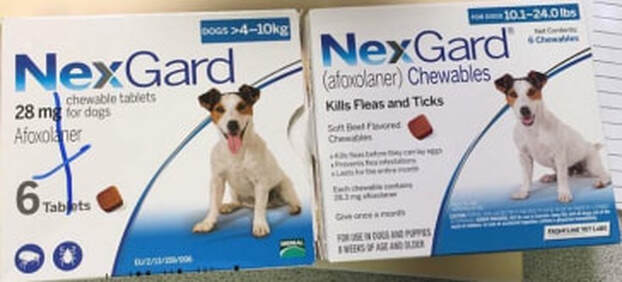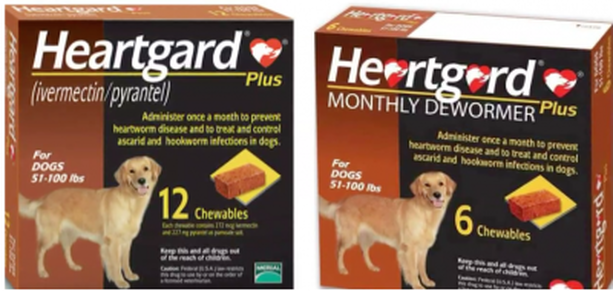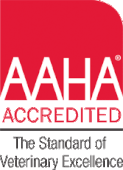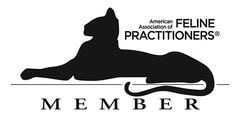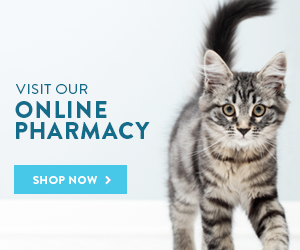Counterfeit Caution: Buying Pet Medication Online
We recognize you have many choices available to you when purchasing medication for your pet. Purchasing online has become easier and easier, but it is important to remember to do so safely. We have some tips and considerations to avoid purchasing counterfeit pet medications. Please let us know if you ever have a question or concern about a medication or online retailer you are considering purchasing from. We are here to help!
Why does it matter?
The counterfeit product could be expired, repackaged, contaminated, have slight variations, different ingredients, or it could not be medication at all. Another risk is that the drug could be “real,” but not stored according to the manufacturer’s instructions. The error in storage can change the makeup of the medication and render it ineffective or even have dangerous side effects.
Frequently counterfeited pet medications:
How do I order medications online safely?
The F.D.A. utilizes the A.W.A.R.E. acronym to help protect consumers.
Ask your veterinarian if they know anything about the site you plan to use.
Watch for red flags, such as not requiring a prescription, not listing an address and phone number, or not having a pharmacist available to answer questions.
Always check for site accreditation, such as from Vet-VIPPS.
Report problems and suspicious online pharmacies. They suggest reporting any issues first to the manufacturer, and then to the F.D.A.’S Center for Veterinary Medicine.
Educate yourself about online pharmacies.
How do I know if an online pharmacy is safe?
How to identify counterfeit pet medications:
Why does it matter?
The counterfeit product could be expired, repackaged, contaminated, have slight variations, different ingredients, or it could not be medication at all. Another risk is that the drug could be “real,” but not stored according to the manufacturer’s instructions. The error in storage can change the makeup of the medication and render it ineffective or even have dangerous side effects.
Frequently counterfeited pet medications:
- Non-steroidal anti-inflammatory drugs — like Rimadyl (carprofen), Deramaxx (deracoxib), Previcox (firocoxib), or Metacam (meloxicam)
- Flea and tick preventative
- Heartworm disease preventative
How do I order medications online safely?
The F.D.A. utilizes the A.W.A.R.E. acronym to help protect consumers.
Ask your veterinarian if they know anything about the site you plan to use.
Watch for red flags, such as not requiring a prescription, not listing an address and phone number, or not having a pharmacist available to answer questions.
Always check for site accreditation, such as from Vet-VIPPS.
Report problems and suspicious online pharmacies. They suggest reporting any issues first to the manufacturer, and then to the F.D.A.’S Center for Veterinary Medicine.
Educate yourself about online pharmacies.
How do I know if an online pharmacy is safe?
- A major red flag is if the retailer does not require a prescription.
- Visit Buy Safely to identify online pharmacies that have been reviewed by the National Association of Boards of Pharmacy.
- Offer deep discounts or low prices that seem “too good to be true.”
- Are not licensed.
- Located outside of the United States.
How to identify counterfeit pet medications:
- Differences in weight between the outer package and the product inside
- Lack of directions in English
- Products not packaged in child-resistant packaging
- Missing directions for use
- Product in the container is not appropriate for the animal or size of the animal pictured on the outside
- Stickers on the box to hide the foreign labeling
- P.A. registration number is missing
- Foreign labeled product with stickers containing some U.S. information
- Foreign-labeled products
Below are two examples of real vs. counterfeit pet medication:
In this example, the product on the left is counterfeit. It is missing information that the real product has on the front of the package. The weight on the counterfeit product also does not match the picture of the pet depicted on the box.
In this example, the product on the right is counterfeit. It has altered the brand of the medication to have the heart logo in place of the letter “A.” It also says “monthly dewormer” and is missing the manufacturer’s logo.
What if I suspect my pet received counterfeit medication?
If you suspect your pet has received counterfeit medication, please contact us immediately. Some medications can cause serious side effects and we can help you determine if your pet may need medical attention. If you suspect they received counterfeit parasite preventative products, please call the National Pesticide Information Center (N.P.I.C.) toll-free at 1-800-858-7378. To report the retailer you purchased the product from, alert the E.P.A.
If you suspect your pet has received counterfeit medication, please contact us immediately. Some medications can cause serious side effects and we can help you determine if your pet may need medical attention. If you suspect they received counterfeit parasite preventative products, please call the National Pesticide Information Center (N.P.I.C.) toll-free at 1-800-858-7378. To report the retailer you purchased the product from, alert the E.P.A.

